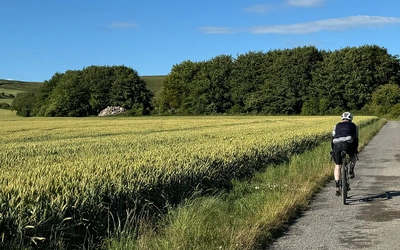
Article

From family bike rides in the Cotswolds and in the south of England, to cycle touring along the Danube and Loire, the Way of St James or over the great cols of the Lake District.
Here you will find guidebooks for day rides, cycle touring and mountain biking within the UK and Europe. Embark on classics such as the Land’s End to John O’Groats (LEJOG) trail or the Coast to Coast (C2C), or explore one of the lesser known cycleways.
42 Books Available
40 Articles Available